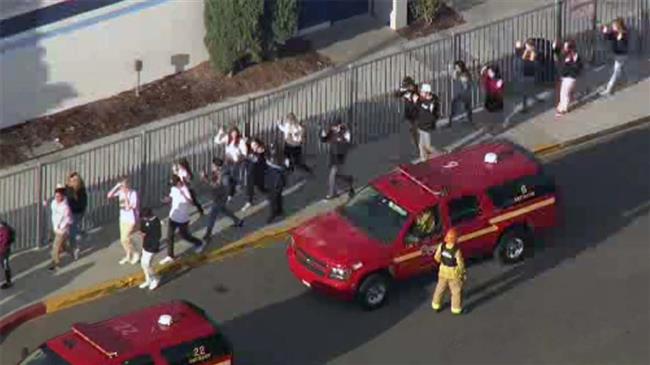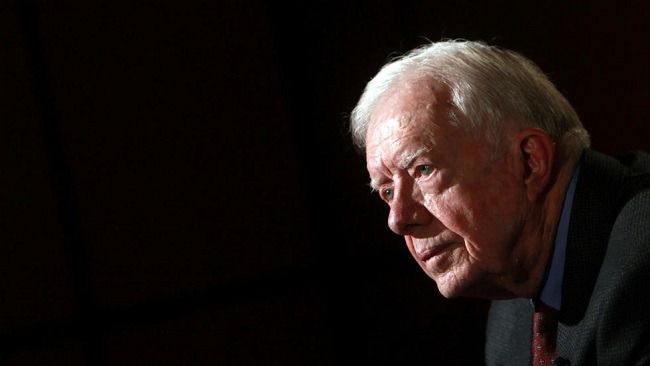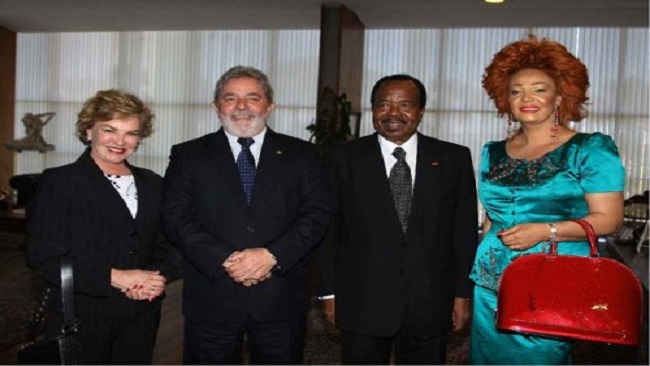20, November 2019
France, Germany offer NATO plans after ‘brain death’ row 0
France and Germany outlined separate proposals for reforming NATO on Wednesday after President Emmanuel Macron slammed the alliance as experiencing “brain death”, causing uproar just weeks before a crucial summit.
French Foreign Minister Jean-Yves Le Drian used the one-day meeting with his 28 NATO counterparts to explain Macron’s damning verdict and offer ideas for improvement.
Macron argued in an Economist interview that Turkey’s military incursion into Syria and US unpredictability under President Donald Trump indicated a failure of strategic thinking at NATO.
Le Drian suggested a “small group of eminent persons” be formed to reflect on “the vision the alliance has of its values and aims” and report back to leaders at their summit in 2021.
The experts should focus on NATO’s relationship with Russia and the future security challenges — in particular terrorism, the rise of China and the impact of new military technology, Le Drian told the ministers.
In a sign of the ongoing tensions with France, NATO chief Jens Stoltenberg, who will next week confront Macron in person about his comments, refused three times to comment on the French proposal at a press conference after the meeting.
But he welcomed a separate plan from German Foreign Minister Heiko Maas to create a group of experts to debate how to strengthen NATO’s political thinking.
“The proposal from minister Heiko Maas received support from many allies and I think it has value,” he said, adding that it would be examined further ahead of the December 4 summit in London.
Maas said the discussion among the 29 allies made him think Germany had “hit the right note” with its plan for a committee chaired by Stoltenberg himself.
US Secretary of State Mike Pompeo said it was “eminently reasonable” for NATO to evaluate itself to ensure it was fulfilling its goals, but questioned whether “this is precisely the right moment or if this is the right format”.
– Unhappy birthday –
NATO has not had a happy 70th birthday year. Macron’s comments came alongside Trump’s insistent complaints about weak European defence spending and growing concerns about Turkey, which has bought missiles from Russia and launched a military operation in Syria with scant regard for allies.
French officials insist Macron made a bold and necessary step by starkly spelling out truths that other allies preferred to gloss over.
But Macron’s arguments that Europe should try to ensure its own security without relying on the US provoked anger from eastern European allies who feel directly threatened by Russia.
Diplomats from other countries point out that it is for now wholly unrealistic for Europe to think it can defend itself without US help — expert estimates suggest filling the gap would cost hundreds of billions of euros.
“There is currently no credible alternative to NATO. We need American capabilities,” one diplomat said.
– Summit tensions –
Away from the political wrangling, foreign ministers prepared the agenda for next month’s summit, lining up a series of announcements to put a positive gloss on the gathering.
“The damage has been done, now we have to limit the fallout to put on a united front in London,” one senior diplomat said.
They also hope that some eye-catching actions will appease the mercurial US president, who will arrive at the summit under the cloud of impeachment hearings back home.
The ministers formally designated space as a domain of conflict — alongside land, sea, air and cyber — though Stoltenberg insisted NATO would not “weaponise” space.
They also signed off a report on China featuring some 24 different areas for allies to work on, though the paper will not be made public.
While China lies well outside NATO’s traditional European-Atlantic sphere, Stoltenberg said Beijing’s growing role as a major military power and heavy investment in new defence technology had implications for alliance security.
He declined to comment directly on the ongoing political protests in Hong Kong but said it was clear China does not “share our values when it comes to elections, freedom of speech”.
Trump’s bugbear — European defence spending — will also feature heavily in London.
NATO will be hoping Germany’s announcement last week of a boost for its military spending will go some way to head off a repeat of the 2018 Brussels summit, when Trump publicly berated Chancellor Angela Merkel for not doing enough on defence.
Source: AFP






























22, November 2019
Israel: Netanyahu indicted on corruption charges, says he won’t resign 0
Israeli Prime Minister Benjamin Netanyahu said on Thursday he would not resign despite being charged with bribery, fraud and breach of trust in a corruption scandal that he denounced as an “attempted coup”.
The charges announced by Attorney General Avichai Mandelblit were the first of their kind against a serving Israeli prime minister and represented the gravest crisis in the political career of Israel’s longest-serving leader.
Netanyahu, in power continuously since 2009 and before that in the 1990s, has dominated Israeli politics for a generation, decisively turning the country to the right. He has denied wrongdoing in the three graft cases, saying he is the victim of a political witch hunt.
He is under no legal obligation to resign. But the indictment could further embolden challengers trying to dislodge him after two inconclusive elections since April, with a third election expected to be announced within weeks.
Conviction on the charges could bring a lengthy jail term. But any trial could be delayed for months by the political crisis, and Netanyahu could try to secure parliamentary immunity from prosecution.ADVERTISING
His rejection of the charges echoed the pugnacious language of his ally, U.S. President Donald Trump.
“It is an attempted coup based on fabrications and a tainted and biased investigative process,” Netanyahu said in a televised speech. “I will continue to lead the country, according to the letter of the law, with responsibility, devotion and concern for all of our futures,” he said, standing at a podium against the backdrop of four Israeli flags in his official residence.
His main centre-left challenger in the two elections this year, Benny Gantz, tweeted in response: “There is no coup in Israel, just a bid (by Netanyahu) to hang onto power.”
The attorney general, who was appointed by Netanyahu, spelled out the indictment in his own televised statement.
“This is a difficult and sad day,” said Mandelblit. It was his duty, Mandelblit said, to ensure that no one in Israel was above the law.
Cases 1000, 2000 and 4000
Police recommended in February that Mandelblit file criminal charges against Netanyahu in the long-running investigations dubbed Cases 1000, 2000 and 4000.
Netanyahu is suspected of wrongfully accepting $264,000 worth of gifts, including champagne and cigars, from wealthy businessmen in one case. In another, he is accused of dispensing favours in return for favourable stories about him in Israel’s biggest selling newspaper, Yedioth Ahronoth.
In the most serious case, he is accused of granting regulatory favours worth about 1.8 billion shekels (about $500 million) to Israel’s leading telecoms company, Bezeq Telecom Israel, in return for positive coverage on a website owned by its former chairman.
Mandelblit indicted Netanyahu on charges of breach of trust and fraud in all three corruption cases, as well as bribery in the Bezeq Telecom case.
“They weren’t after the truth, they were after me,” Netanyahu said in his address, a note of emotion in what was otherwise a speech mixing anger with accusations.
“What I’m going through is not easy. I’m a human being, too. What my family is going through is unbearable. Every day, every evening, my blood and the blood of my wife and son are being spilled.”
Netanyahu failed to form a government after the election in April, and he and Gantz each fell short of securing a ruling majority in parliament after the second vote in September.
Earlier on Thursday, during one of the most unusual days in Israeli political history, the country’s president told lawmakers to name a third candidate to form a new government, a development that probably sets the stage for a third election within a year.
“These are harsh dark days in the annals of the State of Israel,” President Reuven Rivlin said as he announced that Gantz had not mustered enough support for a stable coalition.
The prolonged political stalemate comes at a tricky time for Israel and its most prominent statesman on the domestic and international fronts.
A conflict with arch-foe Iran has deepened – Israeli warplanes hit Iranian targets in Syria on Wednesday after rockets were fired toward Israel – while fighting with Palestinian militants in Gaza flared last week.
The introduction of criminal charges could further complicate the eventual rollout of a long-delayed Middle East peace plan from Trump, by imperilling the political future of one of the key players whose support is needed.
And if a new Israeli election is in the cards, Netanyahu would be running as an indicted suspect, displaying further vulnerability to an electorate that has already seen him falter at the polls.
Palestinians greeted the news with grim pleasure. Palestine Liberation Organization official Wasel Abu Youssef said that for years Netanyahu had sought to avoid this outcome by “launching wars against the Palestinian people” to boost his domestic popularity.
(REUTERS)